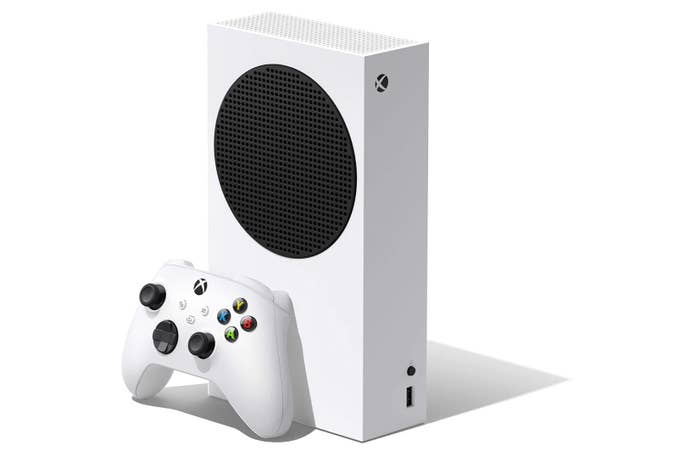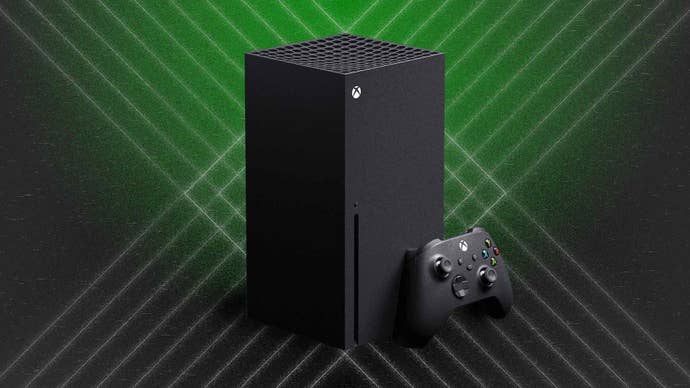The Xbox Series S is the best value in gaming – that doesn’t mean it isn’t also a problem
The Xbox Series X and Xbox Series S were always supposed to be treated the same, but the reality of that promise is starting to show its teeth – and it's not good news.
It’s been a rumor for a while, the sort of statement whispered between developers and occasionally to the media in hushed tones and with pleas for a guarantee of anonymity. But these last couple of weeks things have gotten a little more real, and it’s even been said out loud once, in a round-about way: the Xbox Series S is a problem.
It’s not the end of the world, obviously. And opinions vary, even among developers. But there’s been an bubbling undercurrent of the suggestion that Xbox’s cheaper, under-powered digital-only console is, well, under-powered. Jim even wrote about that undercurrent back in October of last year to refute it. “If the Series S is a Potato, then I’m a Banana,” he opined in defense of the machine. And, well, maybe we can use Jim to make some Banana Bread for the VG247 team.
This debate flared back up thanks to Larian Studios and its upcoming RPG behemoth Baldur’s Gate 3. BG3 was announced for PlayStation but not Xbox, leading fans to wonder and worry that it was a PS5 console exclusive. Larian stepped in to clarify that it wasn't – but what it offered wasn’t exactly what Xbox fans wanted to hear.
"We've had an Xbox version of Baldur's Gate 3 in development for some time now," reads a statement Larian offered to various games media outlets. "We've run into some technical issues in developing the Xbox port that have stopped us feeling 100% confident in announcing it until we're certain we've found the right solutions – specifically, we've been unable to get split-screen co-op to work to the same standard on both Xbox Series X and S, which is a requirement for us to ship."

Though a slightly softer statement that didn't name-check specific consoles was later released on social media, it's pretty obvious that what this initial response refers to. Undoubtedly, the problem child is the weaker machine here - split-screen co-op will inevitably up the rendering requirements significantly, as two players can be in two very different places, doubling the work the machine has to do. That's probably relatively painless on the big-boy console, but a challenge on weaker machines.
This initial response marks the first time that a studio has so pointedly underlined the developmental challenges of the power discrepancy between the Series X and S. At least in public. And to some degree it shatters Jim’s argument from back in October, because here we’re in a situation where the only reason PlayStation currently has a release date for this game and Xbox doesn’t is that the developers are struggling to get it running on both machines to a required standard.
This is all about requirements, in fact. Speaking to development sources, my understanding is that the obvious solution of simply removing the offending feature from the weaker version of the game isn’t actually allowed by Microsoft. I’m told that it basically boils down to an enforced adherence to a concept of ‘gameplay parity’: if you lack parity in play features between the Series S and X versions of your game, you’ll fail Xbox’s formal certification. Without that certification, you cannot release.
So, for instance, you can have a visual difference between versions, such as Series X having access to ray tracing or a presentation that’s 60fps while the Series S presents at 1080p or 30fps. That’s fine, as a visual difference is expected and understood. But the moment there is a material difference between the versions such as an extra mode like split-screen, it’s flagged as a problem and a barrier to release.

This, I think, is the problem. I think anybody who denies that the Series S is a truly special piece of kit is frankly a moron – it’s ludicrous value, and when coupled with Game Pass it’s probably the best bang-for-buck way to get into console video games right now. It’s brilliant. I personally own two in addition to a single Series X because I game around the house in multiple rooms. Combined with its functionality as a pretty decent media center for streaming apps and Kodi and its chops as an utter emulation beast, it's an easy investment to justify.
But as the title says, being great value and a little bit brilliant also doesn’t preclude this machine from becoming a thorn in the side of Xbox in some ways. The Series S is a far easier sell, but as we press deeper into this generation and developers get better at squeezing more from the higher-end machines, ambitions will grow and we’ll encounter more situations like this, where the existence of an Xbox version of a major game at all is potentially prevented, and at the very least delayed, by the scrappier, cheaper console.
As this argument has raged, I’ve seen a lot of people saying that the Series S being weaker doesn’t matter because there is a weaker machine on the market – the Nintendo Switch. But Baldur’s Gate 3 proves the difference; that game was likely never coming to Switch anyway, and right now it isn’t just not coming to Series S, it’s also not coming to Xbox in general. As it stands, unless a solution presents itself or something changes, Xbox players risk missing out on this game. Jim even predicted this back in October, actually, albeit from a more positive perspective:
.jpg?width=690&quality=70&format=jpg&auto=webp)
“Some developers feel all the same that Microsoft’s requirement to support the Series S with every Xbox release – preventing them from splitting the userbase – is cramping their style,” he noted. “But if they’re that determined to artificially cut their market in half, there’s nothing stopping them from making their games exclusive to other platforms.”
Those chickens have come home to roost. Jim begins to slowly shrink and transform into a banana. And right now, Xbox faces missing out on one of the biggest and coolest-looking games of the year because of the Series S. We can agree that’s a problem, right?
Any product is going to be a bundle of good and bad things. The good absolutely outweighs the bad with the Series S – and like I say, it’s one of the best things available in the gaming market right now. But it’s also fair to say that if this is the first of many such instances, Xbox has some difficult things to consider about its certification requirements and rules. The time may come before the end of the generation – or even possibly sooner rather than later – that exact feature parity requirement between the two may have to end. Even if it does, Series S will still be great value. It just might be a bitter pill for Microsoft to swallow.

